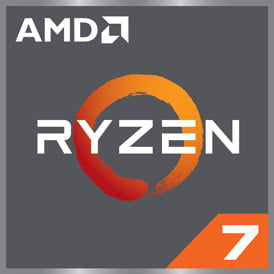
Sony Playstation 5 Benchmark, Test and specs
Last updated:
The Sony Playstation 5 is a 8 core processor. It can handle 16 threads simultaneously and was introduced in Q3/2020. The Sony Playstation 5 is based on the 3. generation of the AMD Ryzen 7 series and requires a mainboard with the socket BGA. The Sony Playstation 5 scores 992 points with one CPU core in the Geekbench 5 benchmark. When using all CPU cores, the result is 6,635 points.

| Name: | Sony Playstation 5 |
|---|---|
| Family: | AMD Ryzen 7 (67) |
| CPU group: | AMD Ryzen 4000G (22) |
| Architecture: | Renoir (Zen 2) |
| Segment: | Desktop / Server |
| Generation: | 3 |
| Predecessor: | -- |
| Successor: | -- |
CPU Cores and Base Frequency
The 8 CPU cores of the Sony Playstation 5 clock with 3.00 GHz (3.50 GHz). The number of CPU cores and the clock frequency of the processor are largely responsible for the overall performance.
| CPU Cores / Threads: | 8 / 16 |
|---|---|
| Core architecture: | normal |
| Cores: | 8x Zen 2 |
| Hyperthreading / SMT: | Yes |
|---|---|
| Overclocking: | No |
| Frequency: | 3.00 GHz |
| Turbo Frequency (1 Core): | 3.50 GHz |
| Turbo Frequency (8 Cores): | 3.50 GHz |
Internal Graphics
With the AMD Custom Radeon Graphics (Playstation 5), the Sony Playstation 5 has an build in graphic solution. It has 36 SM processors, which have a total of 2304 texture shaders. The iGPU not only enables games, but also significantly accelerates video playback.
| GPU name: | AMD Custom Radeon Graphics (Playstation 5) |
|---|---|
| GPU frequency: | 2.23 GHz |
| GPU (Turbo): | No turbo |
| Compute units: | 36 |
| Shader: | 2304 |
| Hardware Raytracing: | No |
| Release date: | Q3/2021 |
| Max. displays: | 1 |
|---|---|
| Generation: | 1 |
| Direct X: | 12 |
| Technology: | 7 nm |
| Max. GPU Memory: | 8 GB |
| Frame Generation: | No |
Hardware codec support
Processors that have an integrated graphics can play videos faster and more efficiently. This can have a positive effect on the battery life of notebooks, for example.
| h265 / HEVC (8 bit): | Decode / Encode |
|---|---|
| h265 / HEVC (10 bit): | Decode / Encode |
| h264: | Decode / Encode |
| VP8: | Decode / Encode |
| VP9: | Decode / Encode |
| AV1: | No |
|---|---|
| AVC: | Decode / Encode |
| VC-1: | Decode |
| JPEG: | Decode / Encode |
Memory & PCIeThe Sony Playstation 5 supports up to 16 GB memory in up to 2 (Dual Channel) memory channels. This results in a maximum memory bandwidth of 448.0 GB/s. |
|
| Memory type: | Memory bandwidth: |
|---|---|
| GDDR6 | 448.0 GB/s |
| Max. Memory: | 16 GB |
| Memory channels: | 2 (Dual Channel) |
| ECC: | No |
| PCIe: | 4.0 x 12 |
| PCIe Bandwidth: | 23.6 GB/s |
Thermal ManagementWith the TDP, the processor manufacturer specifies the cooling solution required for the processor. The Sony Playstation 5 has a TDP of 65 W. |
|
|---|---|
| TDP (PL1 / PBP): | 65 W |
| TDP (PL2): | -- |
| TDP up: | -- |
| TDP down: | -- |
| Tjunction max.: | 100 °C |
Technical details
The Sony Playstation 5 has a 8.00 MB large cache. The processor is manufactured in 7 nm. Modern production increases the efficiency of the processor.
| Technology: | 7 nm |
|---|---|
| Chip design: | Monolithic |
| Socket: | BGA |
| L2-Cache: | -- |
| L3-Cache: | 8.00 MB |
| AES-NI: | Yes |
| Operating systems: | Windows 10, Windows 11, Linux |
| Virtualization: | AMD-V, SVM |
|---|---|
| Instruction set (ISA): | x86-64 (64 bit) |
| ISA extensions: | SSE4a, SSE4.1, SSE4.2, AVX2, FMA3 |
| Release date: | Q3/2020 |
| Release price: | -- |
| Part Number: | -- |
| Documents: | -- |
Rate this processor
Benchmark results

The benchmark results for the Sony Playstation 5 have been carefully checked by us. We only publish benchmark results that have been created by us or that have been submitted by a visitor and then checked by a team member. All results are based on and fullfill our benchmark guidelines.
Cinebench R23 (Single-Core)
Cinebench R23 is the successor of Cinebench R20 and is also based on the Cinema 4 Suite. Cinema 4 is a worldwide used software to create 3D forms. The single-core test only uses one CPU core, the amount of cores or hyperthreading ability doesn't count.

|
Intel Core i7-7567U
2C 4T @ 4.00 GHz |
||

|
Intel Core i7-8750H
6C 12T @ 4.10 GHz |
||

|
AMD Ryzen 7 2700
8C 16T @ 4.10 GHz |
||
|
|
Sony Playstation 5
8C 16T @ 3.50 GHz |
||

|
Intel Core i5-8500B
6C 6T @ 4.10 GHz |
||

|
Intel Core i5-8500
6C 6T @ 4.10 GHz |
||

|
Intel Core i5-1030NG7
4C 8T @ 3.50 GHz |
||
Cinebench R23 (Multi-Core)
Cinebench R23 is the successor of Cinebench R20 and is also based on the Cinema 4 Suite. Cinema 4 is a worldwide used software to create 3D forms. The multi-core test involves all CPU cores and taks a big advantage of hyperthreading.

|
Microsoft XBox Series S
8C 16T @ 3.40 GHz |
||

|
AMD Ryzen 5 3600X
6C 12T @ 4.20 GHz |
||

|
Intel Core i7-1355U
10C 12T @ 1.70 GHz |
||
|
|
Sony Playstation 5
8C 16T @ 3.50 GHz |
||

|
Apple M1 Pro (8-CPU)
8C 8T @ 3.20 GHz |
||

|
AMD Ryzen 7 5700U
8C 16T @ 3.30 GHz |
||

|
Intel Core i5-11500H
6C 12T @ 3.80 GHz |
||
Geekbench 5, 64bit (Single-Core)
Geekbench 5 is a cross plattform benchmark that heavily uses the systems memory. A fast memory will push the result a lot. The single-core test only uses one CPU core, the amount of cores or hyperthreading ability doesn't count.

|
Intel Core i3-9300T
4C 4T @ 3.80 GHz |
||

|
Intel Xeon E3-1265L v3
4C 8T @ 3.70 GHz |
||

|
Intel Xeon E5-2699 v4
22C 44T @ 3.60 GHz |
||
|
|
Sony Playstation 5
8C 16T @ 3.50 GHz |
||

|
Intel Core i5-10500TE
6C 12T @ 3.70 GHz |
||

|
Intel Processor N100
4C 4T @ 3.40 GHz |
||

|
Intel Core i5-8257U
4C 8T @ 3.90 GHz |
||
Geekbench 5, 64bit (Multi-Core)
Geekbench 5 is a cross plattform benchmark that heavily uses the systems memory. A fast memory will push the result a lot. The multi-core test involves all CPU cores and taks a big advantage of hyperthreading.

|
AMD EPYC 7551P
32C 64T @ 2.55 GHz |
||

|
Intel Core i5-11500H
6C 12T @ 3.80 GHz |
||

|
AMD Ryzen 5 5500GT
6C 12T @ 3.60 GHz |
||
|
|
Sony Playstation 5
8C 16T @ 3.50 GHz |
||

|
Intel Core i5-12500T
6C 12T @ 3.20 GHz |
||

|
Intel Core i5-11400H
6C 12T @ 3.70 GHz |
||

|
AMD Ryzen Embedded V2516
6C 12T @ 2.10 GHz |
||
Cinebench R20 (Single-Core)
Cinebench R20 is the successor of Cinebench R15 and is also based on the Cinema 4 Suite. Cinema 4 is a worldwide used software to create 3D forms. The single-core test only uses one CPU core, the amount of cores or hyperthreading ability doesn't count.

|
AMD Ryzen Threadripper 1900X
8C 16T @ 4.00 GHz |
||

|
Intel Core i5-8500
6C 6T @ 4.10 GHz |
||

|
Intel Core i7-8850H
6C 12T @ 4.30 GHz |
||
|
|
Sony Playstation 5
8C 16T @ 3.50 GHz |
||

|
Intel Core i5-8279U
4C 8T @ 4.10 GHz |
||

|
Intel Core i3-1005G1
2C 4T @ 3.40 GHz |
||

|
Intel Core i7-7600U
2C 4T @ 3.90 GHz |
||
Cinebench R20 (Multi-Core)
Cinebench R20 is the successor of Cinebench R15 and is also based on the Cinema 4 Suite. Cinema 4 is a worldwide used software to create 3D forms. The multi-core test involves all CPU cores and taks a big advantage of hyperthreading.

|
Intel Core i5-11260H
6C 12T @ 3.60 GHz |
||

|
AMD Ryzen 5 3600X
6C 12T @ 4.20 GHz |
||

|
Intel Core i5-11400H
6C 12T @ 3.70 GHz |
||
|
|
Sony Playstation 5
8C 16T @ 3.50 GHz |
||

|
AMD Ryzen 5 PRO 6650U
6C 12T @ 3.80 GHz |
||

|
AMD Ryzen 5 5600H
6C 12T @ 3.80 GHz |
||

|
Intel Core i7-8700K
6C 12T @ 4.30 GHz |
||
iGPU - FP32 Performance (Single-precision GFLOPS)
The theoretical computing performance of the internal graphics unit of the processor with simple accuracy (32 bit) in GFLOPS. GFLOPS indicates how many billion floating point operations the iGPU can perform per second.

|
Apple M2 Max (30-GPU)
Apple M2 Max (30 Core) @ 1.40 GHz |
||

|
Apple M3 Max (14-CPU 30-GPU)
Apple M3 Max (30 Core) @ 1.40 GHz |
||

|
Apple M1 Max (32-GPU)
Apple M1 Max (32 Core) @ 1.30 GHz |
||
|
|
Sony Playstation 5
AMD Custom Radeon Graphics (Playstation 5) @ 2.23 GHz |
||

|
Apple M1 Max (24-GPU)
Apple M1 Max (24 Core) @ 1.30 GHz |
||

|
Apple M2 Pro (12-CPU 19-GPU)
Apple M2 Pro (19 Core) @ 1.40 GHz |
||

|
Apple M3 Pro (12-CPU 18-GPU)
Apple M3 Pro (18 Core) @ 1.40 GHz |
||
Estimated results for PassMark CPU Mark
Some of the CPUs listed below have been benchmarked by CPU-monkey. However the majority of CPUs have not been tested and the results have been estimated by a CPU-monkey’s secret proprietary formula. As such they do not accurately reflect the actual Passmark CPU mark values and are not endorsed by PassMark Software Pty Ltd.

|
AMD Ryzen 7 1800X
8C 16T @ 3.80 GHz |
||

|
AMD Ryzen 5 4500
6C 12T @ 3.60 GHz |
||

|
Intel Xeon E5-2667 v2
8C 16T @ 3.60 GHz |
||
|
|
Sony Playstation 5
8C 16T @ 3.50 GHz |
||

|
Intel Core i5-11500H
6C 12T @ 3.80 GHz |
||

|
Intel Xeon Silver 4214
12C 24T @ 2.40 GHz |
||

|
Intel Xeon W-11865MLE
8C 16T @ 2.70 GHz |
||
Benchmarks

Cinebench R23 (SC)
586 entries
586 entries

Cinebench R23 (MC)
565 entries
565 entries

Geekbench 5 (SC)
2,488 entries
2,488 entries

Geekbench 5 (MC)
2,461 entries
2,461 entries

Cinebench R20 (SC)
656 entries
656 entries

Cinebench R20 (MC)
604 entries
604 entries

FP32 SP (iGPU)
2,042 entries
2,042 entries

PassMark CPU-Mark
2,392 entries
2,392 entries
Popular comparisons
back to index







